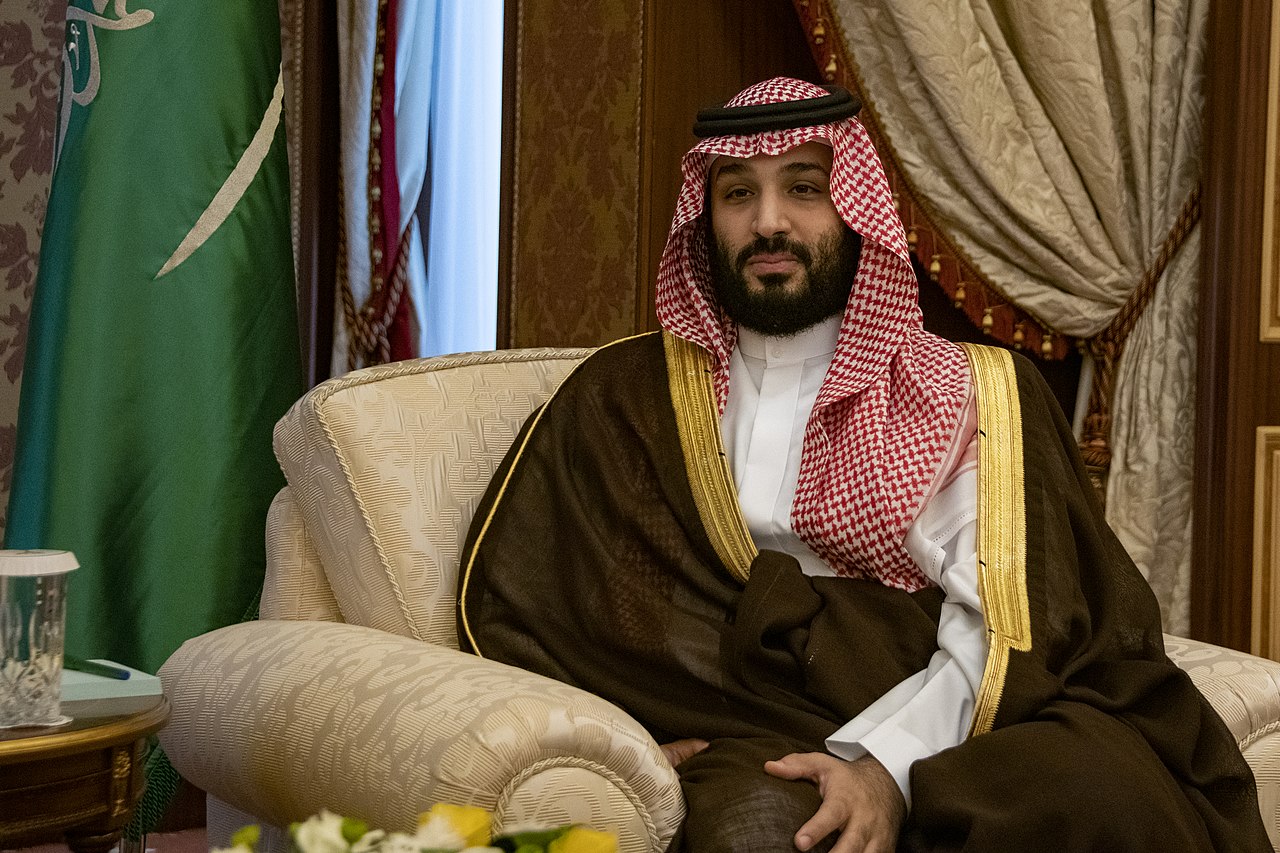Underneath the sheen of an unprecedented collaboration between Aston Martin, the preferred automaker of fictional British spy James Bond, and Californian electric vehicle prodigy, Lucid Motors, lies a compelling subplot—the omnipresent hand of Saudi Arabia, a leading exporter of oil and gas on the planet.
Last month’s partnership, far from being merely an alliance of tradition and innovation, also features the Public Investment Fund (PIF)—Saudi Arabia’s sovereign wealth fund. While the PIF’s role in channelling immense quantities of fossil fuel-generated wealth into projects and enterprises worldwide is well-known, its significant stakes in both Aston Martin and Lucid Motors might raise a few eyebrows.
Estimated to oversee assets exceeding £500 billion, the PIF is chaired by Saudi Arabia’s de facto ruler and Prime Minister, Crown Prince Mohammed bin Salman (MBS), a scion of the Al Saud dynasty. The PIF holds an 18% stake in Aston Martin, valued at approximately £450 million, exemplifying the ultra-conservative kingdom’s ambition to extend its economic reach in Britain, akin to the approaches of other Gulf countries such as Qatar.
Beyond Aston Martin, the PIF’s portfolio also comprises holdings in Carnival, a renowned cruise ship company, and several controversial forays into the realm of sports. In 2021, it attracted global attention following its purchase of Premier League football team Newcastle United from the former owner, retail tycoon Mike Ashley. Despite the charges of “sportswashing” surrounding this takeover—due to allegations of regimes with dubious human rights records leveraging professional sports to improve their images—supporters compared the backlash to the response to similar acquisitions by other Middle Eastern entities.
Moreover, the kingdom’s growing clout in the sports sector was further underscored last month amidst uproar over a proposed merger between the Saudi-backed LIV Golf tour and the US PGA Tour. Simultaneously, Saudi Arabia has committed to a ten-year Formula One hosting deal, with speculation also swirling about its plans to host the 2030 football World Cup.
The dive into professional sports is perceived by many as Saudi Arabia’s attempt to ‘cleanse’ its international reputation, particularly given its notorious human rights record and stringent laws, which include capital punishment for same-sex activity and severely restricted women’s rights.
“The Saudi authorities’ use of their sovereign wealth fund reveals that it is not merely a vehicle for state investment—it’s also a tool for state-level image management,” Peter Frankental, Economic Affairs Director at Amnesty International UK, noted. He added that Saudi’s acquisition of Newcastle United and partnership with Aston Martin could be seen as another step in this ‘sportswashing’ direction.
However, opponents of Saudi Arabia’s growing influence must reckon with one undeniable truth: the PIF’s extensive resources offer the potential to fund the kind of long-term investments that the UK sorely requires. Infrastructure endeavours such as the Sizewell C nuclear power plant are expected to be financed in part by sovereign wealth funds.
The future influx of Saudi investment seems unlikely to slow down, particularly given the boon of recent global oil price surges following Russia’s invasion of Ukraine.
The British Government recognises Saudi Arabia as its largest trading partner in the Middle East. With shared interests and a potential free-trade agreement with the Gulf Cooperation Council on the horizon, the UK aims to stimulate its economy, bolster employment, and increase wages.
Additionally, private Saudi investors, like their peers in countries such as Qatar and the United Arab Emirates, are increasingly captivated by the UK’s profitable property market. The ninth son of Saudi King Salman bin Abdulaziz, Turki bin Salman Al Saud, reportedly owns around 20 properties in London via Moncrieff Holdings, a firm headquartered in the British Virgin Islands.
Image Credit: U.S. Department of State



















